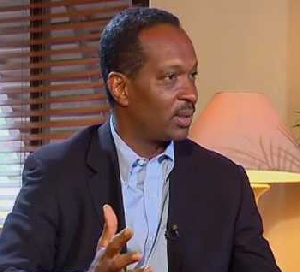The Volta River Authority (VRA) has tabled a proposal for power tariff increases and says the current tariff it receives is among the lowest in West Africa.
The power producer, whose current tariff was fixed as far back as 2011, receives 4 cents (8 pesewas) per Kilowatt hour of power sold to the Electricity Company of Ghana, whereas other power producers within the sub-region receive between 10 cents and 13 cents per Kilowatt hour.
Togo buys power from its national and regional power producers at 10 cents per Kilowatt hour; Benin and Burkina Faso pay 13 cents, and Ivory Coast pays 12 cents per Kilowatt hour. VRA also exports power to these countries at between 10 and 12 cents per Kilowatt hour.
The low domestic tariff has stifled the ability of the company to generate enough revenue to invest in new projects in order to meet the increasing electricity demand in the country, said Ekow Acquah, VRA Manager, Sales Contracts and Regulations, in an interview with the B&FT.
“We need to charge realistic tariffs to encourage Independent Power Producers (IPPs) to come into the sector and invest. If we don’t do that people [investors] won’t come or will invest in other areas,” he said.
“The bulk of the cost build-up in the production of power lies in the generation sector. For that reason, the power generator should be given the right tariff to enable it to produce efficiently. Looking at the current cash flow, we wouldn’t be able to support the construction of the Akosombo Dam if we were to construct it today.”
He said the environmental requirements of power producers are so stringent now compared to 50 years ago, and must be mitigated through tariffs. “Because our tariff is low, we are not able to provide medical services to the people of the Volta Basin who were displaced when the dam was constructed. We are also not able to mitigate other economic challenges of the people.”
Within the last five months, VRA has spent US$300million -- much higher than the US$200 million bill for crude oil recorded for the whole of 2011 -- to generate thermal power as a result of the curtailment of natural gas flow from the West Africa Gas Pipeline.
With the damage to the pipeline, which has led to the reliance on more expensive crude oil, VRA’s fuel bill has risen threefold, its Chief Executive Kwaku Andoh Awotwi told the B&FT in a separate interview. “Yet the tariff has not changed,” he added.
Annual electricity demand and consumption is rising between 8-10 percent. Demand and consumption hit 1,664 megawatts in 2011 and grew to 1,800 megawatts in 2012 -- just about equal to the supply.
The Ghana Grid Company Limited (GRIDCo), transmitter of power produced by the VRA, however, estimates that the country needs an additional 340 megawatts of reserve power capacity for contingencies.
The matter of removing subsidies on electricity tariffs is a dicey one for Government, which has to strike a balance between sustained investments in electricity supply and safety-nets for the poor segment of consumers.
On Thursday, Finance Minister Seth Terkper hinted that Government will soon adjust electricity tariffs as part of steps to streamline public expenditure and improve the financial strength of the utilities.
Business News of Tuesday, 28 May 2013
Source: B&FT













